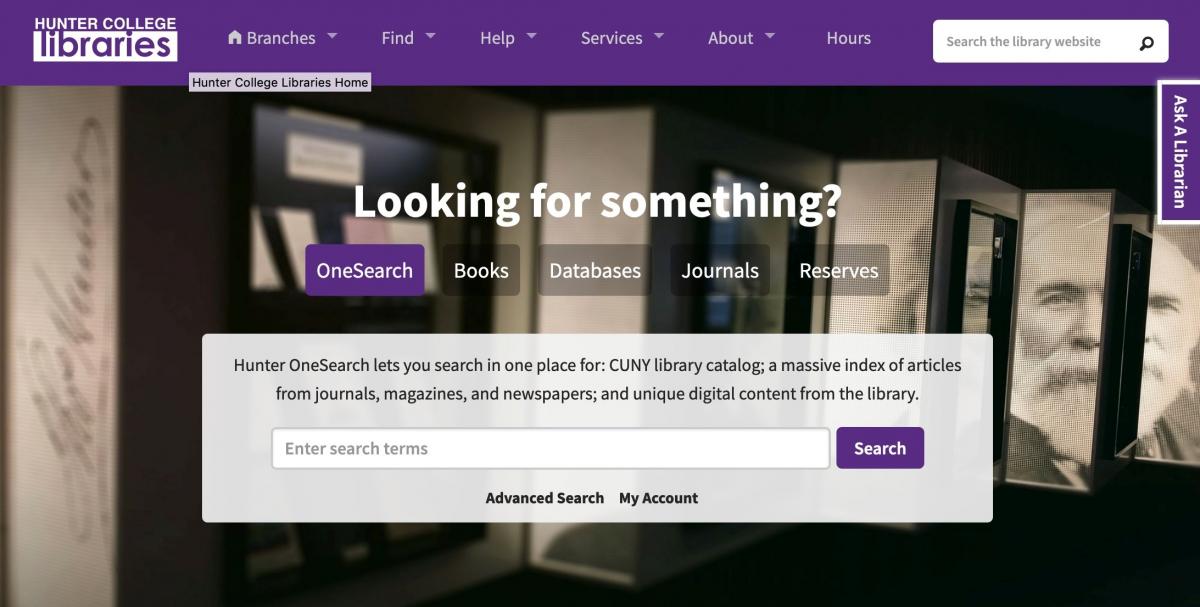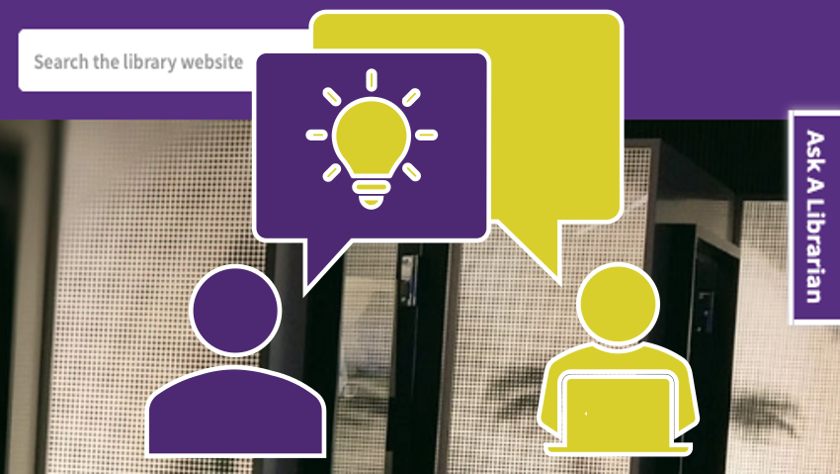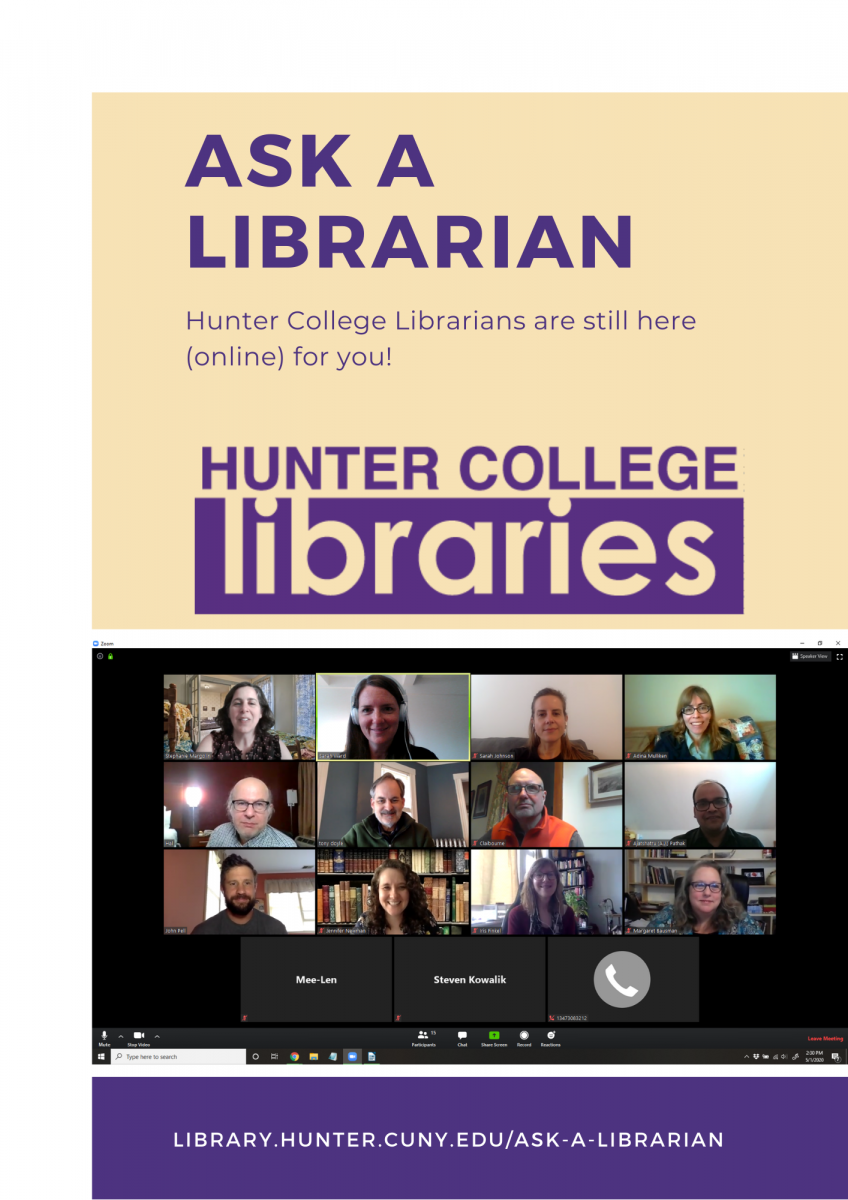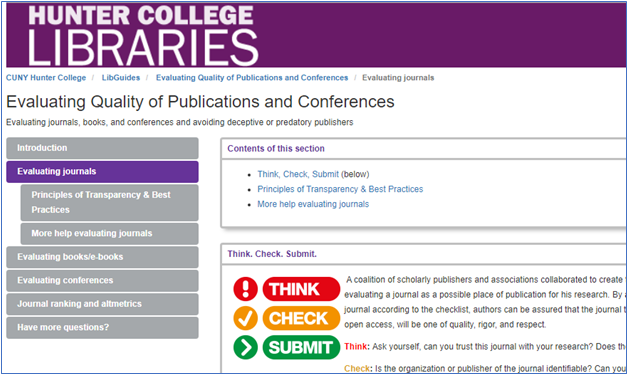The Hunter College Libraries offer this guide to assist faculty in identifying appropriate and reputable venues in which to publish or present scholarly work. This may be helpful to faculty who have been targeted by requests to publish or present in a venue with which they are not familiar, to newer faculty, and anyone who wants to learn more about current issues regarding publication quality. The guide discusses issues related to open access publishing; factors that make some journals or publishers less credible than others; and methods for evaluating the credentials of a journal or academic conference. We also recommend consulting guidelines for best practices within your own disciplines and professional associations.
News
Welcome to the Fall 2020 semester! Things here are different. We know that you need access to Library services and resources, but all of our Libraries will be physically closed for the Fall 2020 semester. However, we are ALWAYS open online.
Please visit this Guide to Library Servcices During the COVID-19 Pandemic to learn how to access our online resources.
And if you have questions (we know that you will have questions) use Ask a Librarian - Hunter librarians are working from home to help you!

As of August 3rd, 2020, OneSearch will be the only place to look for resources from Hunter College and other CUNY Libraries. Please note that CUNY’s Classic Catalog will no longer be available. Individual database access will not be affected.
Additionally, you will now use your CUNY credentials to log in to OneSearch to check your account and to save links from search results.

Do you know about Very Short Introductions Online from Oxford University Press? These are succinct overviews of subjects written by experts in their fields, 637 of them, ranging from Abolitionism: A Very Short Introduction, to Zionism: A Very Short Introduction. Entries in the V's including Vikings, Viruses and Voltaire. They serve as a useful bridge between a brief reference entry on a subject and higher academic works. Use them to decide if you want to pursue a research topic, and if so, in which direction.
Click the link above (NetID/password login required), or find them in our list of Databases under the letter V: https://library.hunter.cuny.edu/databases/titles/v

[Emancipation Day Celebration, June 19, 1900]
Image citation:
Stephenson, Mrs. Charles (Grace Murray). [Emancipation Day Celebration, June 19, 1900], photograph, June 19, 1900; (https://texashistory.unt.edu/ark:/67531/metapth124053/ : accessed June 15, 2020), University of North Texas Libraries, The Portal to Texas History, https://texashistory.unt.edu; crediting Austin History Center, Austin Public Library.
On June 19, 1865 in Galveston, Texas General Gordon Granger of the Union Army informed the people of Texas that all enslaved people in the state were free.
This was in accordance with Lincoln’s executive order, the Emancipation Proclamation, issued two and a half years earlier. That order had declared all the enslaved people in the Confederate states free. By the time Granger made the announcement in Texas, Lincoln was gone. Enforcement of his order in Texas had been slow.
June 19, the date of Granger’s announcement became the date for an annual celebration, Juneteenth (a combination of June and nineteenth). Also known as Emancipation Day, it is the oldest and most popular celebration of the emancipation of enslaved people. In 1980, Juneteenth became an official state holiday in Texas. Today it is a holiday in 47 states including New York (since 2004). Outdoor celebrations commonly include parades, picnics and speeches. Henry Louis Gates writes: "Juneteenth celebrates African American freedom and achievement, while encouraging continuous self-development and respect for all cultures."
Ralph Ellison’s novel Juneteenth was published in 1999.
For more information about Juneteenth, see this New York Times article, "Juneteenth: The History of a New Holiday."
In 2020, CUNY began observing Juneteenth as an official holiday across the system, following Gov. Cuomo’s executive order declaring it a holiday for state employees.
On June 18, 2021, President Biden signed legistation making Juneteenth a federal holiday.
This post was written by Lisa Finder, Associate Professor, Electronic Resources Librarian, and Liaison to the Department of Africana, Puerto Rican, and Latino Studies
Did you know that librarians teach classes in information literacy and research? LIBR 100 is a one-credit course for students who are interested in improving their research skills and gaining an understanding of the flow of information and information sources. When students learn the skills taught in LIBR 100 they are better equipped to evaluate information, critical in a time when it is difficult to distinguish reliable information from misinformation. See the Information Research (LIBR 100) page for upcoming classes.

Celebrate Pride Month (June 2020) by reading some first-hand histories of individuals and organizations active in mid-twentieth century LGBTQ+ communities. Early archives include the records of gay and lesbian associations started in the 1940's and 1950's. Decades later, three collections document governmental and medical responses to the AIDS crisis. In between are a treasure trove of primary sources including oral history transcripts, diaries and letters. Discover how primary sources illuminate history. Link to Archives of Sexuality & Gender (log in with your Hunter NetID/password is required: https://go-gale-com.proxy.wexler.hunter.cuny.edu/ps/dispBasicSearch.do?userGroupName=cuny_hunter&prodId=AHSI

"Gay Power." Gay Power, vol. 3, no. 37, 1975. Archives of Sexuality and Gender, https://link.gale.com/apps/doc/QOGKTT296280043/AHSI?u=cuny_hunter&sid=AH.... Accessed 3 June 2020.

You might notice that our Ask A Librarian chat service has gotten a new look. It is still the same great service that allows you to chat with a librarian whenever you are feeling stuck with your research, overwhelmed by search results, or not finding what you are looking for. Ask A Librarian is staffed by a network of college and university libraries to allow you to chat 24/7 with college and university librarians from across the world. Give it a try. We are sure you will find librarians can be a wonderful resource for refining research questions, developing search strategies, and providing all sorts of recommendations for books, journals, databases, and other resources. If your question turns out to be too complex to resolve in a chat session, just leave your email and Hunter Librarians will follow up with you.
Hunter College Libraries staff and faculty are all still working hard to provide access to our services and resources.
Our Ask-a-Librarian service is busier than ever and available 24/7 - Hunter Librarians are online an ready to help. When Hunter and CUNY librarians are unavailable, a worldwide consortium of academic librarians are online and help you and also refer your questions to us for follow up.
When in doubt, Ask A Librarian!

